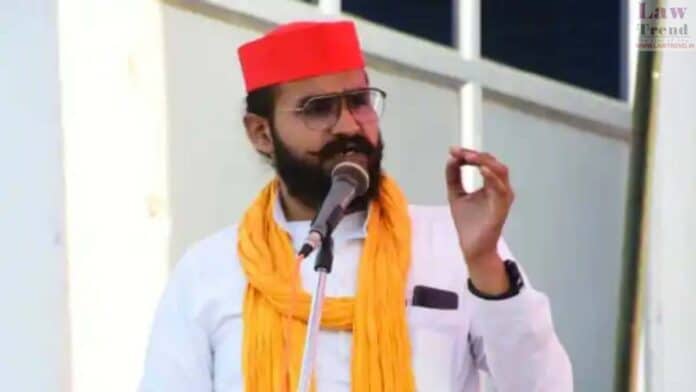The Supreme Court of India on Thursday called for a response from the Uttar Pradesh government regarding the bail plea of MLA Abbas Ansari. Ansari, representing the Mau assembly constituency, has been accused of orchestrating extortion activities from behind bars using his wife’s mobile phone. The apex court’s request for a state response follows the rejection of Ansari’s bail by the Allahabad High Court’s Lucknow bench on May 1.
Abbas Ansari, son of the late gangster-politician Mukhtar Ansari, has been embroiled in allegations suggesting that while incarcerated at Chitrakoot district jail, he threatened various individuals to extort money. The accusations include the misuse of mobile phones and an alleged plot involving his wife’s driver and jail officials to facilitate his escape from prison. The initial FIR, filed in February 2023, noted that Ansari’s wife frequently visited him without adhering to the mandated formalities and restrictions.
The High Court, in its denial of bail, pointed out the serious nature of the allegations, emphasizing that Ansari, as an MLA, is expected to uphold a higher standard of conduct. The evidence, including CCTV footage and witness statements, appeared to indicate Ansari’s involvement in these illicit activities. The court also highlighted the unusual level of access granted to Ansari’s wife, which it deemed beyond what is typically allowed, suggesting potential complicity on Ansari’s part.
The case was brought before a bench comprising Justices Surya Kant, Dipankar Datta, and Ujjal Bhuyan, who have decided to hear the matter further in two weeks. During this period, the UP government is expected to submit its response to the allegations and Ansari’s request for bail.
Also Read
This case draws attention not only due to its legal complexities but also because of its political ramifications, given Ansari’s family background and his role as a legislator. The Supreme Court’s eventual decision will likely have significant implications for Ansari’s political career and the broader perception of law enforcement and justice in political contexts.




